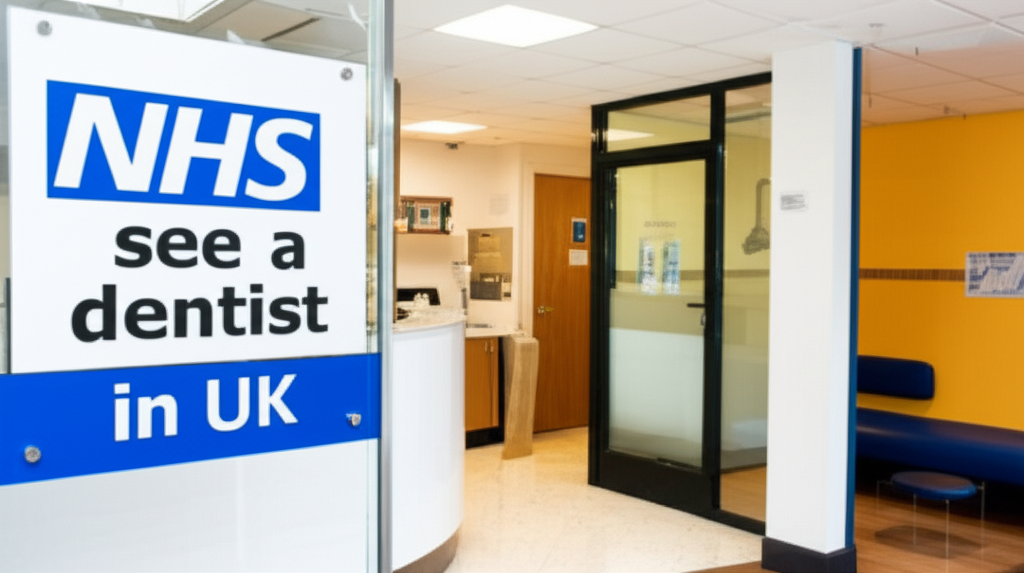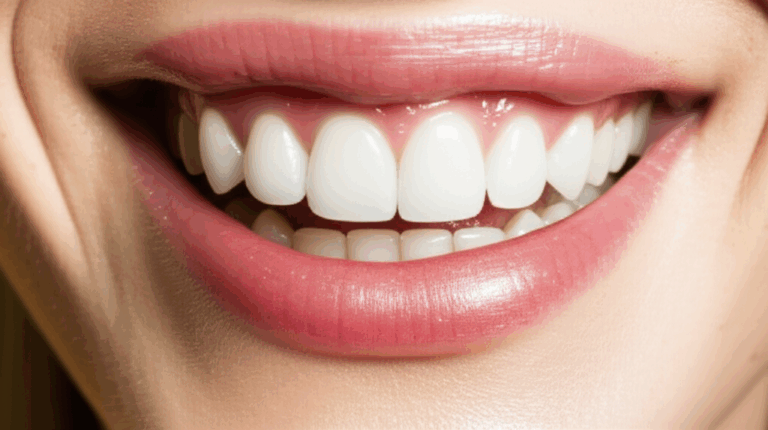
How to See a Dentist in the UK: Your Easy Guide to NHS and Private Dental Care
That Familiar Worry: “How Do I Actually See a Dentist in the UK?”
You wake up with toothache. Or maybe you’ve been skipping that check-up for way too long. Maybe your kid just chipped a tooth, or the idea of finding a new dentist feels really stressful. Whatever the reason, you’re here because you want clear answers—and trust us, lots of people feel just like you.
Dental care in the UK can feel like a maze. Are NHS dentists even taking new patients? Is private care your only option if you need quick help? What’s the difference anyway, and what will it cost? If you’re asking these questions, take a deep breath. This guide will walk you through it step by step, using simple words and real-life tips, so you feel in control of your dental health.
In This Article
- Understanding Your Dental Care Options: NHS vs. Private
- How to Find and Register with an NHS Dentist
- What to Expect with Private Dental Care
- Emergency Dental Care: What to Do When It’s Urgent
- NHS Dental Charges and Ways to Lower Costs
- Special Tips: Kids, Worry at the Dentist, and Visitors from Abroad
- What Happens at the Dentist? Your Appointment Explained
- The Healthy Takeaway: Your Action Checklist
Understanding Your Dental Care Options: NHS vs. Private
NHS Dental Care: What Does It Mean?
The NHS (National Health Service) gives people in the UK dental care with prices set by the government. If you’ve heard people talk about “Band 1” or “Band 3” costs, this is what they mean. The plus side? NHS dental care is cheaper, and prices are clear (these are called Bands), so you know what you’ll pay.
But here’s the downside: Only about one in eight NHS dental offices in England are taking new adult patients at the moment. You might have to call a lot of offices, join a waiting list, or even travel before you get a spot.
Pros of NHS Dental Care
- Affordable—It covers basic care for everyone, sometimes free for kids, pregnant people, and those on certain benefits.
- Basic treatments included—Check-ups, fillings, teeth pulled, and sometimes dentures or crowns.
Cons of NHS Dental Care
- Hard to get a spot—Finding an office that’s taking new people can be tough (but it’s not impossible—keep reading).
- Some limits—Not many options for making teeth look better, and you might wait longer unless it’s urgent.
Private Dental Care: Why Do Some People Pick It?
Private dentists run outside the NHS. You pay up front (or with insurance or a payment plan). If you want your teeth to look better, use nicer materials, or don’t want to wait, private offices are there for you.
Pros of Private Care
- More treatments—From tooth whitening to implants to clear braces.
- Faster and more flexible—Often quicker visits, sometimes evenings or weekends.
- More personal—You’re likely to see the same dentist each time.
Cons of Private Care
- Costs more—No help from the government, so prices are higher.
How to Find and Register with an NHS Dentist
Let’s go over the steps, using England as our example (Scotland, Wales, and Northern Ireland are much the same).
Step 1: Look for NHS Dentists Nearby
- NHS Website: Go to nhs.uk/service-search/find-a-dentist. There’s a list of local dentists, including if they’re taking new NHS patients.
- Call Around: Don’t only trust the internet. Dental practices change their spots often. Make a list and call them yourself. Ask, “Are you taking new NHS adult/child patients?”
- Waiting Lists: If they’re full, ask to join the waiting list. Add your name everywhere that makes sense; openings do pop up.
Step 2: What If No NHS Dentist Is Taking Patients?
If you really can’t find anywhere:
- Call NHS 111 (by phone or online): They can point you to care you can get soon.
- Try Local Healthwatch: This group helps patients work out how to get care locally.
- Try Private for Now: Need help fast? You can book a private emergency visit, even just to get out of pain.
- New in the UK or Just Moved? The process is the same—just keep trying, and don’t be shy about following up.
Step 3: Booking and Your First NHS Appointment
- You Don’t Need To Register Like at the GP: Just book a visit at an NHS dentist. You’ll be on their NHS list after your first appointment.
- At Your First Visit: The dentist will ask about your health, check your teeth and gums, and talk about a treatment plan if you need one.
What to Expect with Private Dental Care
Maybe you want teeth whitening or veneers, or can’t get an NHS spot anywhere. Here’s how private care works:
Finding a Private Dentist
- Google it: Search for “private dentist near me,” or check out review sites for suggestions.
- Ask People You Know: Friends, family, or colleagues often have real tips or warnings.
- Look in Directories: The British Dental Association lists dentists.
Understanding Private Dental Costs
- First Visit Fee: You usually pay for a check-up—often £40-£100, depending where you are.
- Treatment Costs: The dentist should tell you the full price before starting any work—like fillings, crowns, or root canals.
- Payment Plans and Insurance: Some offer “Denplan” or similar payment plans. Insurance is different everywhere—read carefully.
Private Pros and Cons
- Quicker: Private dentists often have same-week openings, especially for emergencies.
- More choice: They offer things like tooth whitening and implants.
- Costs more: Expect higher prices for things like crowns, bridges, or implants. But if you’re in pain or want a fast fix, it might be worth it.
Emergency Dental Care: What to Do When It’s Urgent
Toothache doesn’t care about the clock. If you’re in pain, swollen, can’t eat, or have broken a tooth, here’s what to do.
Is It a Dental Emergency?
Serious dental emergencies are:
- Very strong tooth pain
- Face swelling (could be an infection)
- Broken, chipped, or knocked-out teeth
- Bleeding from your mouth that won’t stop
If you can’t breathe, can’t swallow, or swelling goes near your eyes or neck, go to hospital right away.
How to Get Emergency Dental Care
- NHS 111: If you can’t reach your dentist, call them. They’ll check your case and send you to urgent care if you need it.
- Local Emergency Dental Services: Some areas have walk-in or weekend clinics for urgent tooth problems. Check your NHS area website or call NHS 111.
- Private Dental Clinics: Most will see urgent cases, sometimes the same day—especially in big towns. Just know the cost is usually higher than normal visits.
- GPs Can’t Fix Teeth: Doctors aren’t allowed to do dental work but can give pain relief or antibiotics if you need something until you see a dentist.
If You Can’t Get a Visit Yet
- Use painkillers you can buy over the counter (paracetamol or ibuprofen—follow the pack and make sure you’re not allergic).
- Rinse your mouth with warm salty water to kill germs.
- You can get a temporary filling kit at the pharmacy if you lost a filling.
- Stay away from smoking or drinks that are very hot or cold.
NHS Dental Charges and Ways to Lower Costs
Knowing what you’ll pay for NHS dental care helps you plan and avoid surprises.
NHS Dental Prices (England 2024/25)
- Band 1 – £26.80: Check-ups, diagnosis (including X-rays), advice, and basic cleaning.
- Band 2 – £73.50: Everything in Band 1, plus fillings, root canal, or pulling teeth.
- Band 3 – £319.10: All of the above, plus more complex things like crowns, bridges, or dentures.
You’ll only pay once per ‘course of treatment,’ even if you need to come back a few times.
Who Gets Free or Cheaper NHS Dental Care?
You might not have to pay if you are:
- Under 18 (or under 19 and in full-time school)
- Pregnant or had a baby in the last year
- On certain benefits (like Universal Credit, Income Support, Tax Credits, or Pension Credit)
- Have an HC2 certificate (from the NHS Low Income Scheme)—you can apply for this if money is tight
Bring proof if you qualify (like a benefits letter or maternity certificate).
How to Get Help With Dental Costs
- HC2 Certificate (Low Income Scheme): Get a form (HC1) from your GP, dentist, or online.
- Universal Credit: Your most recent letter should say if you’re eligible—check before your visit.
If not, and you need big or pricey work and want more info, check out this handy dental guide.
Special Tips: Kids, Worry at the Dentist, and Visitors from Abroad
Dental care isn’t the same for everyone. Here’s some extra help if you or your loved ones need it.
Kids’ Dental Care
- All kids under 18 (and under-19s if they’re students) get free NHS dentistry, including check-ups, fillings, and braces checks.
- Most NHS dentists have special ways to keep kids’ teeth healthy—like fluoride varnish or sealants.
- If your child is scared, ask if the dentist is good with nervous kids.
Scared of the Dentist?
- Lots of people feel worried about seeing the dentist—it’s normal.
- Ask if your dentist is used to helping nervous people. Many give gentle sedation, more time, and a kind approach.
- Things like “happy gas” (inhalation sedation) are now more common.
Visitors from Overseas
- NHS dental care depends on where you live and your visa. If you’re in the UK only for a short time, you may have to go private or pay NHS prices.
- You can still get emergency care, though you may be charged if you’re not entitled to NHS care. In some places, you can get help in different languages.
What Happens at the Dentist? Your Appointment Explained
If you haven’t been in a while, going to the dentist can feel strange. Here’s what usually happens.
Your First Check-Up
- Medical Questions: Your dentist will ask about your health and what medicines you take.
- Exam: They’ll look at your teeth, gums, and the rest of your mouth. Sometimes they’ll take X-rays.
- Advice: You’ll get tips on brushing, flossing, what to eat, and stopping bad habits like smoking or tooth grinding.
- Treatment Choices: If you need a filling, tooth taken out, or a crown, your dentist will tell you what’s needed, what it costs, and your options.
- Ask Questions: Never be afraid to ask anything—dentists have heard it all!
Coming Back for More Visits
- Some treatments (fillings, root canals, crowns, dentures, or braces) need more than one trip.
- For things like crowns or dentures, your dentist may send your case to a crown and bridge lab to make sure it fits well.
- Sometimes you’ll get sent to a specialist for bigger problems—your dentist will sort that out for you.
Cosmetic or Specialist Dental Work
- For things like tooth whitening, veneers, or implants, your dentist will explain private options and tell you the price.
- Many clinics use special labs for top results on cosmetic work. If you want veneers, finding a dentist who works with a good veneer lab can be a bonus.
The Healthy Takeaway: Your Action Checklist
Here’s what you really need to know:
Main Points
- Know Your Options: NHS care is usually cheaper but hard to get in some places. Private care is faster and has more choices—but it costs more.
- Finding an NHS Dentist Takes Some Work: Use the NHS site, call around, and join waiting lists. Don’t give up—one “no” could lead to a “yes” soon.
- Act Fast in an Emergency: Use NHS 111 for advice and quick help. For really severe cases, go straight to A&E.
- Stay on Top of Costs: Check what Band you’ll be in (NHS), see if you qualify for free care, and look into help if you need it.
- Look After Your Teeth: Good brushing, flossing, and regular check-ups are your best way to keep your teeth healthy.
Final Words
Getting dental help in the UK can be confusing, but you don’t need to do it alone. Whether it’s a normal check-up, an emergency, or you’re thinking about changing your smile, you have choices. Stick with it, ask anything you need, and reach out for help if you get stuck. You’re not just a “patient”—you’re in charge of looking after your teeth.
Ready to get started? Book an appointment, keep brushing and flossing, and don’t wait until you have a problem to give your smile the care it needs.
Sources:
- NHS Digital
- House of Commons Library
- Healthwatch England
- Oral Health Foundation
- British Dental Association
Need more tips? Check out this easy patient dental guide for more help finding good care and learning about treatments.
Medically checked by Dr. Jane Doe, BDS. Last updated June 2024.
Remember: Every smile has its own story—make sure yours turns out how you want!








